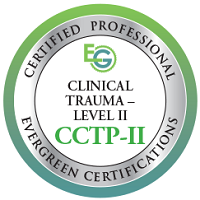Trauma and Your Health

The connections between unresolved trauma and the immune system provide insight into a wide array of medical symptoms. The sympathetic and parasympathetic nervous systems are meant to work in a rhythmic alternation that supports healthy digestion, sleep, and immune system functioning. However, chronic stress and unresolved trauma interfere with the balance between the sympathetic and parasympathetic nervous systems. As a result, unresolved PTSD takes a significant toll on physical health.
“This post takes a closer look at the relationship between stress, trauma, and your health. Developing an understanding of how your body responds chronic PTSD can help you to feel empowered to take a greater role in your health care. When you are informed about your body and mind you attend to challenges of chronic illness with greater success.”
-Dr. Arielle Schwartz
The Healthy Stress Response
As human beings, we are wired for survival. We will respond with a typical “stress” response whether reacting to an actual or a perceived event. A healthy response to stress involves an increase in cortisols such as adrenaline into your bloodstream that facilitates a fight or flight response in your body. These chemicals give you the energy you need to move and metabolize the energy released in your body. Once there are sufficient levels of cortisols in your bloodstream, your brain receives a signal to stop releasing these neuro-chemicals and you return to baseline. This process is called homeostasis.
Traumatic Stress

Ideally stress is temporary. However, when a stressful situation persists you remain in a state of high alert without the ability to rest. When faced with chronic stress your body will continue to produce high amounts of cortisol. As a result you will likely feel keyed up, jumpy, or anxious.
In contrast, traumatic stress is the result of an event that has life threatening implications. In such a situation fight and flight are unsuccessful. The biological effects of trauma are more enduring and extreme. In the case of unresolved trauma there is a surprising finding–low levels of cortisols within the bloodstream. This does not mean that your body is producing fewer stress chemicals. In fact, you continue to release high amounts of cortisols; however, the physiology of unresolved PTSD involves a change in how your body processes them. The body adjusts to the chronic release of cortisols by developing an increased number of receptors on the cells that re-uptake these neuro-chemicals. This process interferes with the negative feedback loop that normally sends the message to your brain to stop signaling for more cortisols.
In sum, chronic PTSD is associated with frequent bursts of cortisol and low levels of available cortisol in the bloodstream. This is the physiological explanation of the classic alternation between being overwhelmed and shut-down. It is as if you are driving with one foot on the gas and one on the brakes.
Chronic Stress, PTSD and Immunity

There is an inverse relationship between bloodstream cortisol levels and the immune system. When bloodstream cortisol levels are high the immune system is suppressed. In contrast, when bloodstream cortisol levels are low the immune system is enhanced or “unchecked.” The immune system is associated with inflammation in the body. Such inflammation is necessary when we are fighting off a virus or bacteria. However, when the immune system continues without a target there is a greater likelihood of long-term physical health problems. Research suggests differential health patterns associated with chronic stress and chronic PTSD.
Health problems that are associated with chronic stress in which cortisol is high and immunity is suppressed include:
- High Blood Pressure: Blood pressure is increased associated with hypertension and heart disease.
- Blood Sugar Imbalances: Blood sugar remains elevated to maintain fight and flight leading to increased risk for hypoglycemia and diabetes.
- Food Cravings: Cravings for sweets, carbs, salt, vinegar, and spices can lead to “emotional eating” when they continue over time.
- Addictions: It is common to seek out temporary “stress relief” or the quick fix of alcohol, caffeine, nicotine, or other drugs contributing to the development of unhealthy habits.
- Sluggish Digestion: Chronic stress interferes with digestion because this is a non-essential activity when we need to flee or fight a predator.
- Suppressed Immunity: Ongoing suppressed immunity is associated with an increased susceptibility to disease and cancer.
Health problems that are associated with unresolved PTSD in which bloodstream cortisol is low and immunity is unchecked include:
- Digestive Disturbances: The parasympathetic nervous system is associated with enhanced digestion. However, too much of a good thing can wreak havoc. In the case of chronic PTSD, there is an overproduction of stomach acids and a greater likelihood of digestive conditions such as Acid Reflux (GERD), and IBS.
- Sleep Disturbances: Normally cortisol rises rapidly after wakening, gradually falls over the day, rises again in the late afternoon, and then falls reaching a low point in the middle of the night. The circadian rhythm is patterned through the cortisol rhythm. With chronic PTSD there is an abnormally flattened circadian cortisol cycle that has been linked to fatigue and insomnia.
- Auto-immune Disorders: When there is no virus or bacteria that needs to be fought, the unchecked immune system will target healthy tissue; leading to increased vulnerability to auto-immune disorders.
Let’s take a closer look at the relationship between unresolved trauma and health…
Irritable Bowel Syndrome (IBS) and Trauma

Digestive problems are exceedingly common symptoms associated with PTSD. It is common to feel ashamed or embarrassed. Know you are not alone. When your nervous system is out of balance there is an overproduction of stomach acids and a greater likelihood of digestive conditions such as GERD and IBS. However, there is a way to reclaim a safe and healthy relationship to your parasympathetic nervous system. It is important to reclaim a healthy relationship to your body and to know that relaxation is your friend. Learn about Polyvagal Theory to unlock PTSD.
Chronic PTSD and Sleep Disorders

Normally cortisol rises rapidly after wakening, gradually falls over the day, rises again in the late afternoon, and then falls reaching a low point in the middle of the night. The circadian rhythm is patterned through the cortisol rhythm. With chronic PTSD there is an abnormally flattened circadian cortisol cycle that has been linked to both chronic fatigue syndrome and insomnia.
Healing Chronic PTSD and Related Health Conditions

There are many practices that increase your ability to respond positively to stress and symptoms of PTSD. Here are several practices I recommend:
- Positive self-talk and gratitude practices
- Exercise at least 30 minutes each day
- Nurture your spiritual life
- Focus on nutrition and nourishment
- Massage and bodywork
- Rest often, slow down, and develop consistent bed times routines
- Cultivate practices that foster an understanding of your inner world and meaning making.
In my work with clients, I have found that having an understanding of the connections between PTSD and the immune system provides insight into a wide array of auto-immune and medically unexplained symptoms. To be honest, there is no easy, quick fix for the healing of chronic PTSD and related health conditions. This is long-term work; however, as we “unpack” the PTSD suitcase there are gradual improvements in both physical and psychological health. EMDR and somatic psychotherapy are two particularly helpful treatments of choice. In my experience, the greatest success stories for chronic PTSD occur when I am working with team of healthcare professionals that may include your primary care physician, specialists, or alternative health care providers such as acupuncturists or naturopaths.
Further Reading:
- Stimulate your Vagus Nerve to Support your Health
- How medications may actually delay the healing of PTSD
- Can Mind-Body Therapies help?
About Dr. Arielle Schwartz

Dr. Arielle Schwartz is a licensed clinical psychologist, wife, and mother in Boulder, CO. She offers trainings for therapists, maintains a private practice, and has passions for the outdoors, yoga, and writing. She is the developer of Resilience-Informed Therapy which applies research on trauma recovery to form a strength-based, trauma treatment model that includes Eye Movement Desensitization and Reprocessing (EMDR), somatic (body-centered) psychology and time-tested relational psychotherapy. Like Dr. Arielle Schwartz on Facebook or sign up for email updates to stay up to date with all my posts.








